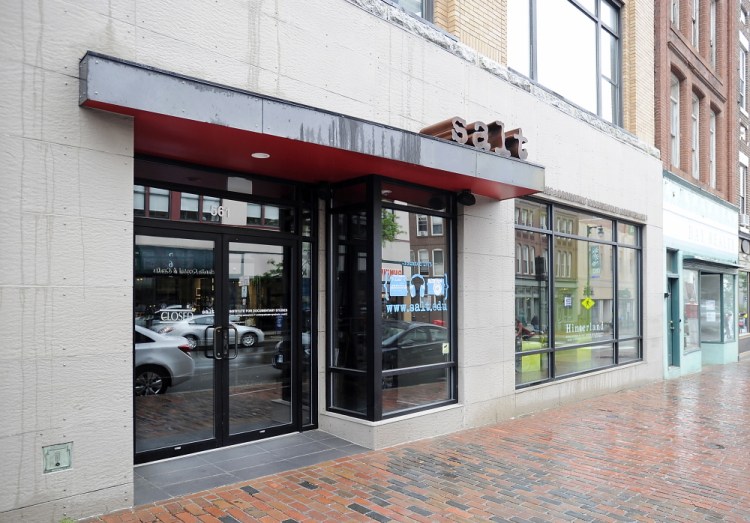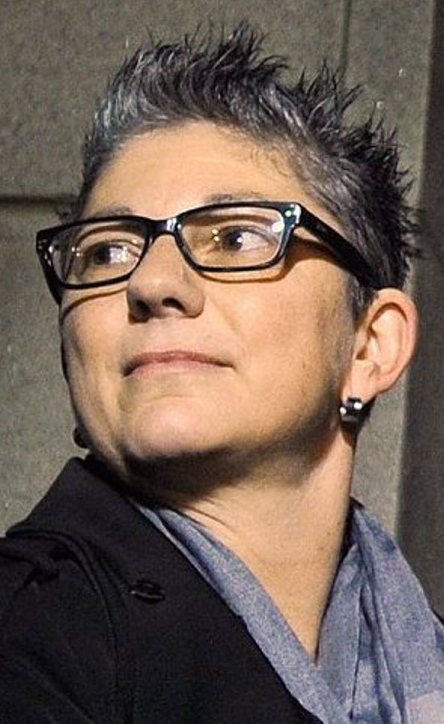The Salt Institute for Documentary Studies, an intensive training program for writers, radio producers and photographers that has operated in Maine for 42 years, is shutting its doors in September.
Executive Director Donna Galluzzo said the decision to close was necessitated by declining enrollment and the lack of consistent funding.
The 2015 spring semester already has ended and Galluzzo said students who are enrolled for the fall semester are being notified.
“We’re still trying to figure out a lot of things right now,” she said. “Everybody is, of course, shocked. People are sad. I’ve had a lot of personal and private heartfelt conversations with people I’ve known for many years.”
Several alumni said they were saddened by the news but not necessarily surprised because the institute had failed to modernize.
“I think many of us could see this coming a few years ago,” said Jen Dean, a 2002 graduate who runs her own photography business in Portland. “If you don’t shift, you go down like a sinking ship.”
High school English teacher Pamela Wood founded Salt in 1973 as a place where mostly post-undergraduate students could study documentary-style journalism. After opening in Kennebunk, the school moved five times before settling in Portland – currently on Congress Street – where people have come from all over the country to participate in one of two 15-week courses, in the spring and fall, and produce a portfolio of work that might help further their careers.
Many alumni have gone on to success as writers, documentary filmmakers and radio producers.
Kerry Seed, who attended in 2002 as a radio student, said he was sorry to hear about the closing.
“It was a tremendous period of growth for me,” said Seed, who now works for a software company in Portland, Oregon. “It was a very intimate experience. The other students had such a high level of engagement and commitment to the program. We were all crazy for storytelling.”
ALUMNI IMPRESSED BY TRAINING
Seed said he produced two lengthy radio pieces while enrolled. He sold one of them, a profile of a Westbrook man struggling to find work in a down economy, to National Public Radio, and is convinced his time at Salt was instrumental in getting work in the field.
Willa Kammerer, a freelance digital storyteller based in New York, attended in 2009.
“For me, it was a really pivotal experience,” she said. “They just kind of threw me into the field and I was forced to get comfortable with that.”
Alexander Cohn, a New York-based photographer who attended Salt in 2001, said it was where he first learned what was possible in terms of storytelling. He still remembers a photo essay he produced about a father-and-son horse-training team at Scarborough Downs.
“It’s really too bad,” he said. “But this is journalism. Everything is under the gun.”
A letter was sent to alumni late Tuesday afternoon informing them that the institute will be closing and indicating that its financial situation is severe.
“As many of you know, Salt has always struggled to achieve solid financial footing,” the email read. “This has been a particular challenge since the recession. Enrollment has been static. Changes in affiliation agreements with colleges have resulted in the critical loss of access to student loans and AmeriCorps funding. We have no endowment to dip into. Rapidly evolving technology needs add additional strain. On top of these factors, Salt has been operating with a barebones staff for some years now.”
Salt has traditionally served about 25 students each session, but has had trouble finding enough students in recent years. Tuition is $9,890, and some students receive financial assistance.
The school operates on a budget of about $500,000, primarily from tuition revenue and some grant funding. It has never had an endowment.
According to its 2013-14 tax filing, Salt ended the last fiscal year more than $83,000 in the hole.
The organization also listed $740,000 in net assets – mostly from proceeds of the sales of a building on Exchange Street and another on High Street.
Galluzzo declined to provide more specific financial information.
Kimberly Curry, the current board chair, said Salt has struggled with funding for many years. She said the school has tried to adapt its programming to include social and other media but it hasn’t resulted in higher enrollment.
When Galluzzo told the board late last year that she planned to step down, efforts to find her replacement were unsuccessful and the board shifted its focus to closing the school.
“I think we got to the point where we wanted to try to go out with dignity,” she said. “We want to try to celebrate the 42 years and the hundreds of stories and the hundreds of people that have been trained at Salt.”
In 2011, the school lost all four faculty members after changes were made to the curriculum, specifically to incorporate more social media and multimedia elements. The board has seen significant turnover as well, including a handful of Portland Press Herald staff members who have served on it in the past.
Dean, the 2002 alumna, said that when the faculty quit four years ago, the organization never fully explained why. Ever since, closure has seemed imminent, she said.
ARCHIVE OF WORK TO BE PRESERVED
One of the biggest concerns about the school closing is what happens to the archive of work produced by hundreds of alumni dating back to 1973.
“We have a tremendous archive and we’re really most focused on finding a home for that,” Galluzzo said. The organization’s existing revenue will help pay for that, she said.
According to the email to alumni, Salt officials are working to digitally preserve final projects and are seeking a home for the archive.
“The board sees the preservation of the archive as paramount and we will work to ensure its safety during this transition,” it read.
Alumni said Salt’s legacy – the stories told by its members – will live on even after the school closes.
Send questions/comments to the editors.



